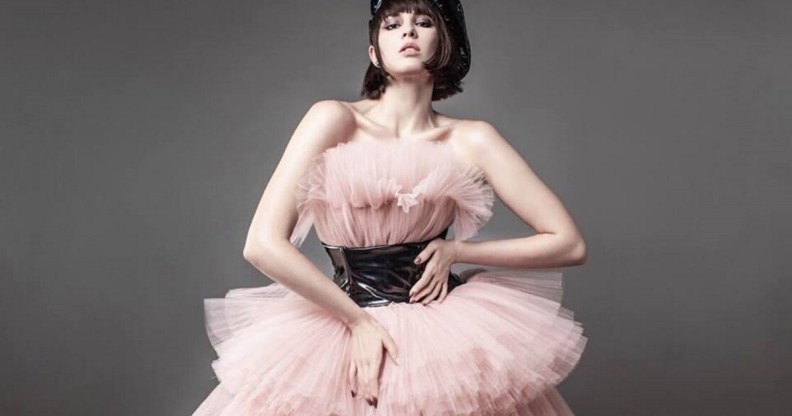Ukraine has pulled out of the Eurovision Song Contest

Maruv was stopped from performing for Ukraine at Eurovision by UA:PBC (MaruvOfficial/facebook)
Ukraine has withdrawn from the 2019 Eurovision Song Contest.
The country’s national broadcaster, UA:PBC, has failed to agree terms with the winner of its selection show, Maruv, or either of the two runners-up, Freedom Jazz and KAZKA, and has decided to pull out.
In a statement, the broadcaster pointed to the performers’ alleged links to Russia as the reason they could not come to an agreement. Relations between the countries have been especially strained since Russia annexed Crimea in 2014.
“The Eurovision Song Contest is an opportunity for every country to showcase itself in an international area, and for each performer to act as an ambassador of their country and win fans from around the world,” UA:PBC told Eurovision’s official website.
“[There is] a systemic problem with the music industry in Ukraine—the connection of artists with an aggressor state.”
— UA:PBC explaining why Ukraine has pulled out of Eurovision 2019
“But the national selection this year has drawn attention to a systemic problem with the music industry in Ukraine—the connection of artists with an aggressor state with whom we are in the fifth year of military conflict,” the statement continued.
“Whilst for some, these links are acceptable, for others it causes indignation and unacceptance.
“Given the current situation, and following Ukrainian law on public broadcasting, as well as conditions of excessive politicisation of the national selection process, UA:PBC has decided to withdraw from the 2019 Eurovision Song Contest.”
The European Broadcasting Union reacts to Ukraine withdrawing from the contest
The European Broadcasting Union, which produces Eurovision, responded with “sadness” to the news.
“Each participating broadcaster is responsible for the selection of their act for the Eurovision Song Contest in accordance to the rules set out by the European Broadcasting Union,” the EBU’s statement said.

Ukraine hosted the Eurovision Song Contest in 2017. (Michael Campanella/Getty)
“It is with sadness that the EBU can confirm that Ukraine’s broadcaster UA:PBC has informed the EBU that, following further discussions, they have made the difficult decision to withdraw from the 2019 Eurovision Song Contest.
“There will be further discussions between the EBU and UA:PBC on this matter but we hope to see them again in 2020. However, for now, we look forward to what is already shaping up to be a fantastic event in Tel Aviv in May.”
Why did Ukraine pull out of the Eurovision Song Contest?
The controversy began on Sunday (February 24), the day after Maruv won the country’s selection contest with her track “Siren Song.” She claimed on Facebook that UA:PBC was pressuring her into agreeing to terms she had issues with.
The 27-year-old singer, whose real name is Hanna Korsun, alleged that she would have been banned from improvising on stage, to the extent that an unplanned dance move could have led to her being fined two million Ukrainian hryvnia (£56,000) by UA:PBC.
She also claimed that she would have needed authorisation to speak to each reporter at Eurovision, which she said “violates my freedom of speech.”
Watch Maruv perform her “Siren Song” here:
On Monday (February 25), she rejected UA:PBC’s contract and criticised the broadcaster’s “enslaving” conditions which she said would have turned her appearance at Eurovision “into a promotion by our politicians.”
UA:PBC said it required its entrant to “express the opinion of the Ukrainian society in the world.”
The broadcaster’s statement continued: “After the negotiations, UA:PBC and the singer Maruv have not found common ground in the mission of the representative of Ukraine at the international song contest.”
UA:PBC then approached Freedom Jazz, a group which came second in the selection contest, and KAZKA, who came third. Neither act agreed to the organisation’s terms.
Since Ukraine first entered Eurovision in 2003, the country has always qualified for the grand final. It has won the competition twice, in 2004 and 2016, allowing Ukraine to host the contest in 2005 and 2017.

